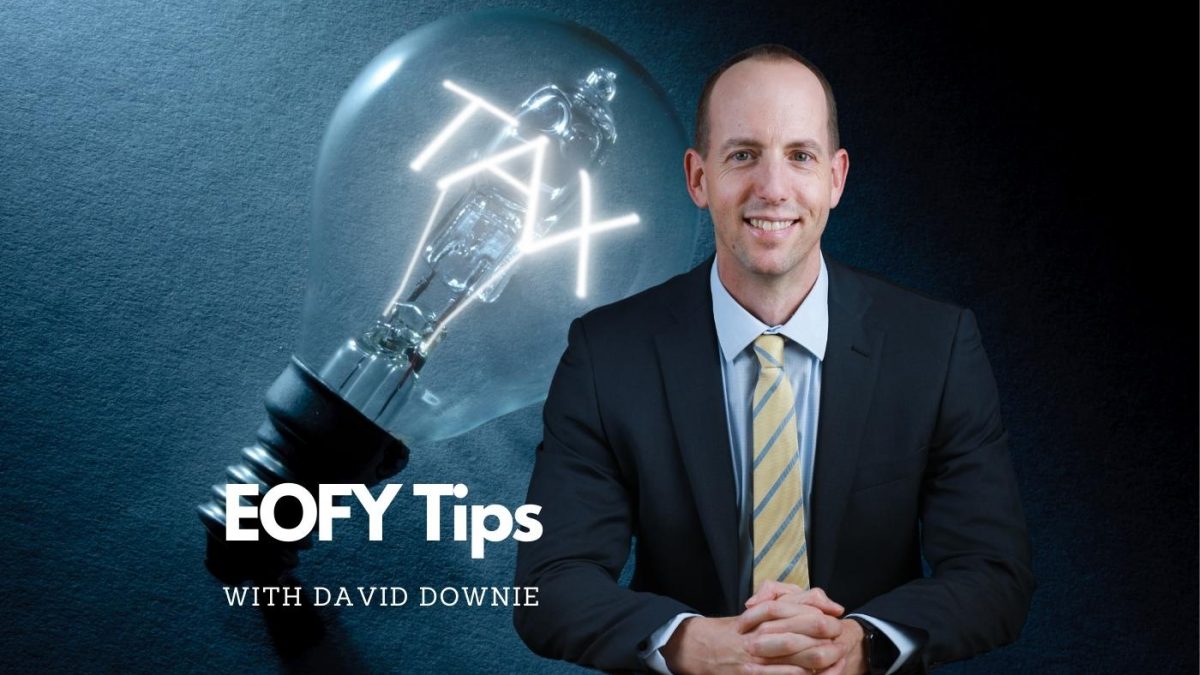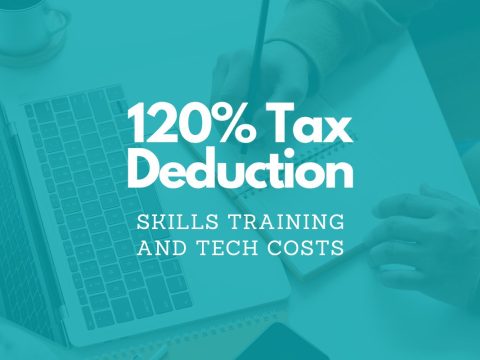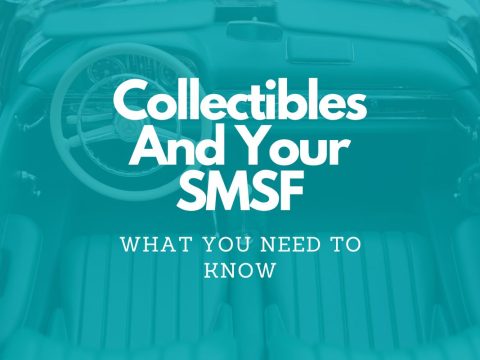EOFY tax planning: actions to consider before 30 June
As 30 June is just around the corner, here’s a quick reminder of things to think about in your year-end tax planning.
For individuals and investors
- Personal super contributions must be received by the fund by 30 June. You can make a maximum tax-deductible contribution of $25,000, and a maximum non-concessional (non-deductible) contribution of $100,000. Those under 65 can use “bring forward” rules to make a lump sum contribution of up to $300,000. Note: It is essential you speak to your accountant first to confirm you have not triggered the “bring forward” rules previously.
- ‘In specie’ super contributions may be made in lieu of cash contributions. These could include, for example, listed company shares. If you transfer loss-making shares, you get the double benefit of reducing capital gains and making a super contribution.
- Tax-deductible ‘catch-up’ contributions are available to people with less than $500,000 in total superannuation as of 30 June 2020, and who have not made the full $25,000 in tax-deductible superannuation contributions in the previous two financial years. These people are eligible to make tax deductible ‘catch-up’ contributions for the shortfall in 2021.
- ‘Bring-forward’ superannuation contributions could benefit people with self-managed superannuation funds, who have had a good 2021 but are expecting lower taxable income in 2022. Consider making double super contributions in 2021, which will bring forward the tax deduction for 2022 to the current year. Ask us about this strategy, which involves creating a reserve in your super fund.
- Pension payments from your superannuation fund must be drawn prior to 30 June. If the minimum annual payment is not reached, the fund will pay more tax!
- Capital gains and losses should be considered. If you have realised capital gains during the year, review your investment portfolio for shares with unrealised capital losses and discuss with us and your investment advisor whether to sell and realise those capital losses. Only consider this if it suits your investment strategy.
- Discretionary trusts need income distribution resolutions for 2021 to be prepared and signed before 30 June (or earlier if the trust deed requires). If this does not occur, the trustee may be liable to pay tax at 45%.
- Company loans to shareholders or related parties need minimum loan repayments for “Division 7A” loans to be made by 30 June, otherwise a deemed dividend will arise for tax purposes.
For businesses
- Small businesses looking to buy plant and equipment could consider bringing forward the purchase to take advantage of the temporary full expensing rules which have been extended to 30 June 2023 in the Federal Budget. Note: This includes second-hand assets for businesses with a group turnover of less than $50M. You also need to be running an actual business.
- Companies with a 2021 tax loss may be able to ‘carry back’ the loss to offset tax paid in the 2019 or 2020 years. If so a tax refund can arise once the 2021 tax return is lodged.
- Pay staff superannuation before 30 June. If you don’t, it’s not deductible until the following year. Please note that if you make staff superannuation payments to the Small Business Superannuation Clearing House, these need to be paid by 23 June to ensure they are deductible this financial year.
- Staff or director bonuses should be considered — you may need to pay them or resolve to pay them before year end. Speak to us first regarding the rules on this.
- Bad debts may be written off, so you can claim a tax deduction. Note: Accounting provisions for bad debts are not deductible.
- Obsolete and damaged stock should also be written off — conduct a stocktake to identify these items. Many business owners who carry inventory are unaware that stock isn’t actually deductible until sold or written off.
- Pay your suppliers before 30 June if you can. This is a good opportunity to get your accounting fees up to date!
- Consider prepaying expenses and, again, talk to us regarding the rules around this.
- Consider paying franked dividends by 30 June. The small business company tax rate is to decrease from 26% to 25% from 1 July 2021, so paying dividends this financial year will help maximise the franking credits available to shareholders.
As always, feel free to contact us with any questions or concerns relating to any of the above.
All the best with your year-end tax planning!
IMPORTANT NOTICE
This blog post contains general information only and has been prepared by Allworths without reference to your objectives, financial situation or needs. Allworths cannot guarantee the accuracy, completeness or timeliness of the information contained here. By making this information available to you, we are not providing professional advice or recommendations. Before acting on any of the information contained here, you should seek professional advice.




